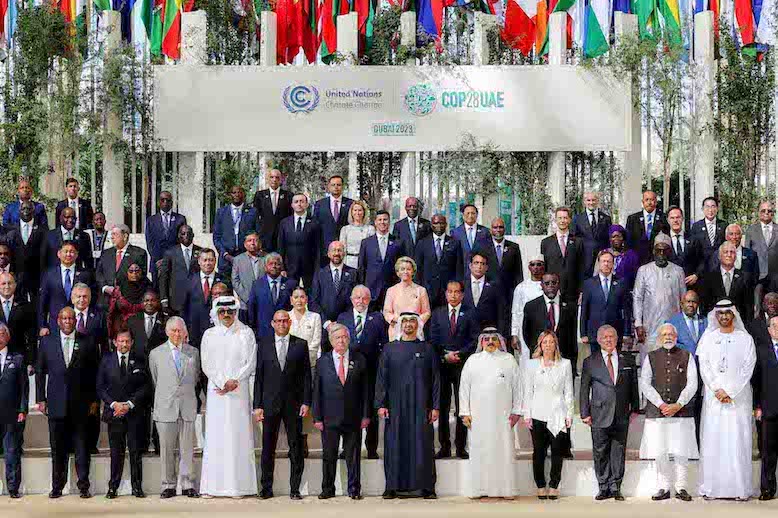The 28th Conference of Parties (COP28) to the United Nations Framework Convention on Climate Change concluded in Dubai, UAE, leaving behind a trail of historic decisions and a spectrum of reactions. As the global community grapples with the urgent need for climate action, the Centre for Science and Environment (CSE) provides insights into the outcomes.
Positive Steps: Loss and Damage Fund and Global Stocktake
The summit opened on an encouraging note with the operationalization of the Loss and Damage Fund, which garnered praise for securing $655.9 million in pledges from various nations. The Fund is seen as a critical tool to address the impacts of climate change, particularly on vulnerable communities.
The adoption of the Global Stocktake (GST) marked another significant milestone. The GST not only recognized the imperative for substantial reductions in greenhouse gas emissions but also urged countries to triple their global renewable energy capacity. This comprehensive evaluation of progress on Paris Agreement goals is a crucial step towards fostering global collaboration.
Equity Concerns and Fossil Fuel Acknowledgment
However, amidst these positive steps, concerns arise. The GST, while setting ambitious goals, fell short on providing a differentiated timeline for the phasedown of fossil fuels. This raised equity concerns, emphasizing the need for developed countries to take the lead in urgent and decisive action.
The recognition of fossil fuels in the GST, after more than 30 years of climate negotiations, is a noteworthy development. Yet, the absence of a clear timeline for fossil fuel phase-out and the allowance for “transitional fuels” pose challenges. The term “transitional fuels” primarily refers to natural gas, creating a potential loophole that could impede progress toward a sustainable energy future.
Adaptation Goals
The decision on the Global Goal on Adaptation (GGA) showcased both positive aspects and areas needing improvement. While the inclusion of a 2030 timeframe for achieving various thematic targets is a step in the right direction, the absence of the principle of common but differentiated responsibilities and inadequate language around financial targets raises concerns.
Negotiation Tracks and the Road Ahead
In other negotiation tracks, such as the Mitigation Work Programme and the New Collective Quantified Goal on climate finance, progress was limited. The challenges in reaching an agreement on market mechanisms under Article 6.2 and 6.4 leave room for dubious voluntary carbon markets, emphasizing the need for stronger, enforceable regulations.
As we reflect on the outcomes of COP28, it is clear that while positive strides have been made, challenges remain. The global community must continue its efforts to address equity issues, set clear timelines for fossil fuel phase-out, and strengthen mechanisms for climate finance. The journey towards a sustainable future demands persistent commitment, collaboration, and decisive action from all nations. Stay tuned for further updates as we navigate the path towards a resilient and low-carbon world.

